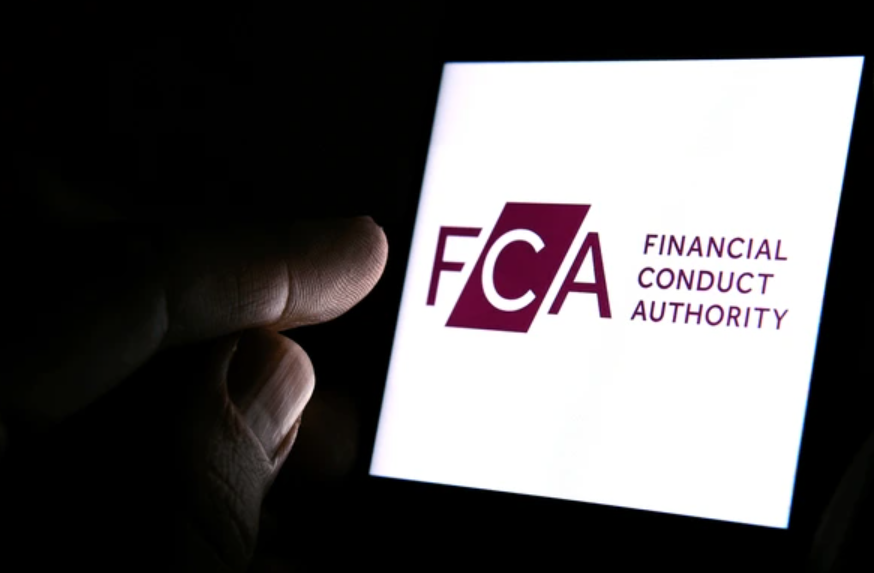Important Information
This website is managed by Ultima Markets’ international entities, and it’s important to emphasise that they are not subject to regulation by the FCA in the UK. Therefore, you must understand that you will not have the FCA’s protection when investing through this website – for example:
- You will not be guaranteed Negative Balance Protection
- You will not be protected by FCA’s leverage restrictions
- You will not have the right to settle disputes via the Financial Ombudsman Service (FOS)
- You will not be protected by Financial Services Compensation Scheme (FSCS)
- Any monies deposited will not be afforded the protection required under the FCA Client Assets Sourcebook. The level of protection for your funds will be determined by the regulations of the relevant local regulator.
Note: UK clients are kindly invited to visit https://www.ultima-markets.co.uk/. Ultima Markets UK expects to begin onboarding UK clients in accordance with FCA regulatory requirements in 2026.
If you would like to proceed and visit this website, you acknowledge and confirm the following:
- 1.The website is owned by Ultima Markets’ international entities and not by Ultima Markets UK Ltd, which is regulated by the FCA.
- 2.Ultima Markets Limited, or any of the Ultima Markets international entities, are neither based in the UK nor licensed by the FCA.
- 3.You are accessing the website at your own initiative and have not been solicited by Ultima Markets Limited in any way.
- 4.Investing through this website does not grant you the protections provided by the FCA.
- 5.Should you choose to invest through this website or with any of the international Ultima Markets entities, you will be subject to the rules and regulations of the relevant international regulatory authorities, not the FCA.
Ultima Markets wants to make it clear that we are duly licensed and authorised to offer the services and financial derivative products listed on our website. Individuals accessing this website and registering a trading account do so entirely of their own volition and without prior solicitation.
By confirming your decision to proceed with entering the website, you hereby affirm that this decision was solely initiated by you, and no solicitation has been made by any Ultima Markets entity.
I confirm my intention to proceed and enter this website Please direct me to the website operated by Ultima Markets , regulated by the FCA in the United Kingdom
Ultima Markets App
Trade Anytime, Anywhere
The UK FCA License is one of the most respected regulatory approvals in the global financial industry, setting high standards for transparency, security, and fair trading practices. Overseen by the Financial Conduct Authority (FCA), this license ensures that brokers and financial institutions operate under strict guidelines to protect traders and investors.
For market participants, especially in forex and CFDs, understanding what is FCA license, its categories, and requirements is essential for choosing a trustworthy trading partner and safeguarding investments.
What is FCA License?
A UK FCA License is the formal authorisation issued by the Financial Conduct Authority that allows a firm to carry out regulated financial activities in the United Kingdom.
The FCA, which replaced the Financial Services Authority in April 2013, is an independent regulator funded by fees from the firms it oversees. It supervises tens of thousands of financial services companies to protect consumers, enhance market integrity, and promote effective competition.
Holding an FCA License means a firm has met strict operational, governance, and financial standards, making it one of the most respected regulatory approvals in the global trading and investment industry.

FCA License Categories
The FCA does not use marketing terms like “STP” or “Market Maker” as formal licence types. Instead, it grants specific permissions under the Financial Services and Markets Act (FSMA) and applies prudential rules based on the firm’s business model.
Commonly referenced industry categories and their FCA equivalents include:
- Matched Principal / STP Broker – Authorised to deal on a matched principal basis (often A-Book model). Subject to prudential requirements under the Investment Firms Prudential Regime (IFPR).
- Market Maker / Dealer – Authorised to deal on own account (B-Book), allowing the firm to act as counterparty to client trades. Requires higher capital and more extensive systems and controls.
- Advisory or Arranging-Only Firms – Can give regulated advice or arrange trades without handling client money. Typically subject to lower capital requirements.
These categories are based on the permissions a firm applies for, not on a separate “type” of FCA licence.
FCA License Requirements
To obtain a UK FCA License, a firm must meet all conditions for authorisation, including:
Capital Requirements
Under IFPR, firms must meet a Permanent Minimum Requirement (PMR), a Fixed Overheads Requirement (FOR), or a capital requirement based on “K-factors” whichever is higher. The exact figure depends on the activities the firm is authorised to carry out.
(Historically, the FCA applied base capital amounts of €50k, €125k, and €730k under IFPRU/BIPRU, but these have been replaced by the IFPR framework.)
‘Ready, Willing and Organised’ Standard
Firms must demonstrate they are prepared to comply with FCA rules from day one. This includes having robust systems, governance structures, risk controls, and compliance procedures.
Appropriate Resources and Personnel
The firm must employ suitably qualified staff including approved Senior Managers and have the necessary operational resources to support its regulated activities.
UK Presence
While not always a strict legal requirement, many authorisations, especially those involving client money or own-account dealing, require UK-based management or operational functions.
Ongoing Compliance
Once authorised, firms must meet continuous obligations, including regular reporting, client-asset protections, and adherence to conduct rules.
Why Traders Value an FCA License
Trading with a broker that holds a UK FCA License offers multiple advantages that directly impact safety, trust, and trading experience:
Enhanced Fund Protection
FCA-regulated brokers must comply with the Client Assets Sourcebook (CASS), which requires segregation of client funds from the broker’s own capital. This ensures your money is ring-fenced if the firm becomes insolvent.
FSCS Compensation Eligibility
If an FCA-licensed firm fails, eligible traders can claim up to £85,000 through the Financial Services Compensation Scheme (FSCS). This acts as a financial safety net, reducing the risk of losing your entire balance in a worst-case scenario.
Strict Conduct Standards
FCA oversight enforces transparency in pricing, fair execution of trades, and responsible marketing, key protections against fraud and misrepresentation.
Global Credibility
The UK FCA License is recognised worldwide as one of the toughest regulatory approvals to obtain. Many international traders specifically seek FCA-licensed brokers for added trust and stability.
Ongoing Supervision
Authorised firms face continuous monitoring, periodic audits, and mandatory reporting, meaning traders benefit from a regulated environment that adapts to evolving market risks.
Conclusion
Understanding FCA license types is crucial for traders when choosing a broker, but it’s equally important to separate marketing terms from the FCA’s official categories. The FCA no longer uses the older “EU license plate,” “STP,” or “MM” classifications in its authorisation process, these are industry labels. Since 2022, the regulator applies the Investment Firms Prudential Regime (IFPR), replacing older capital requirement tiers like €50,000, €125,000, and €730,000.
Traders should also note that the Financial Services Compensation Scheme (FSCS) now protects eligible investments up to £85,000, not £50,000 as stated in outdated sources. Always verify a broker’s status on the official FCA register and understand their permissions before trading, this ensures your capital is protected under the UK’s strict regulatory framework.
Disclaimer: This content is provided for informational purposes only and does not constitute, and should not be construed as, financial, investment, or other professional advice. No statement or opinion contained here in should be considered a recommendation by Ultima Markets or the author regarding any specific investment product, strategy, or transaction. Readers are advised not to rely solely on this material when making investment decisions and should seek independent advice where appropriate.












